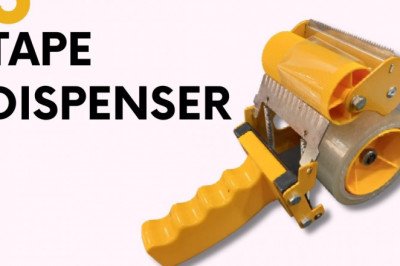views
4 Common MMI scenarios and how to ace them
There are some MMI scenarios or MMI Interview Questions that come up very often - which are dubbed as ‘high yield’ scenarios.
The following scenarios are taken from BlackStone Tutors, who offer an MMI question bank and Medicine Interview Course that will allow you to work through many situations like this, and in turn develop and iterate your answers.
There are two process-responses which show you how to approach these questions in a stepwise manner, and two full length responses which show you an ideal approach.
1) You are an A&E doctor and your next patient is a 12 year old unconscious girl who has been in a car accident. The girl has lost a considerable amount of blood and requires a minimum of 3 units of blood to stabilise her, without which she will likely pass away. As you prepare to commence the first unit of blood, the girl’s mother approaches you saying that under no circumstances does she want her daughter to have any blood-products.
Explain what actions you would take in this scenario.
This case represents an increasingly common dilemma amongst Jehova Witness patients. Whilst it is important to take parental views into consideration, management decisions for children under the age of 16 are largely dictated by the child’s best interests. I believe that it would be in the best interest of the child to have the transfusion, and as such I would seek to involve wider MDT (multidisciplinary team) members to understand if they agree similarly. In addition to medical consultants, an independent advocate and legal advisor may also be able to provide useful input.
In the event that there was a dispute which did not require emergency life-saving management, applying for a court order would be appropriate prior to implementing any management.
2) You are a junior doctor on a consultant ward round and by accident you wrote the entry in the wrong patient’s notes. At the end of the ward round, the charge nurse advised you regarding the potential error and you subsequently removed the page from the notes and threw it into the bin. Outline the main issues raised.
Managing the immediate risk/harm and escalating if required
Preventing further short term consequences
Investigating to prevent long term recurrences
3) You are a junior doctor in a GP surgery. A 14 year old has arranged an appointment to request contraception. Explain what actions you would take in this scenario.
This is a sensitive case which requires application of the Fraser Guidelines. I would assess the patient based on the following criteria, and if she met all the conditions, I would proceed to prescribe contraception:
The young person will understand the professional’s advice
The young person cannot be persuaded to inform their parents
The young person is likely to begin, or to continue having, sexual intercourse with or without contraceptive treatment
Unless the young person receives contraceptive treatment, their physical or mental health, or both, are likely to suffer
The young person’s best interests require them to receive contraceptive advice or treatment with or without parental consent
Given that I am a Junior Doctor in this case, this may not be something which I have encountered previously and hence it would be important to involve a senior colleague if I had any uncertainty regarding the most appropriate action to take.
4) ‘The United Kingdom should allow a legal market for the sale of non-essential organs.’ Outline your views on the above statement.
There are two important sides to consider.On one hand, legalising the sale of non-essential organs will likely increase the supply or organs, thus reducing the waiting list for organs and improve the quality of life for many people currently on the waiting list. An example of where this has worked well is in Iran where the waiting list for non-essential organs is comparatively short. Additionally, with organs available for transplant, ‘organ matching’ can be more specific with reduced likelihood of rejection as well as improved skill set and efficiency of transplant doctors (given that they will be performing more organ transplants).
From a financial perspective, there are likely to also be economies of scale benefits. A legal market would also help to reduce the ‘black market’ for organs where transplants are often performed without suitable consent, and in infection-prone conditions.
On the other hand, the term ‘non-essential’ is relatively subjective and time specific. Whilst a donor may be able to spare one kidney or a cornea at present, this may become problematic at a later stage should their remaining kidney or cornea become damaged. Additionally, it could be argued that placing a financial incentive to ‘donate’ organs will act as a regressive policy and put pressure on less affluent individuals to sell their organs in order to feed their family, and the only people who will benefit from such a policy are the rich who will be able to bypass the organ waiting list and purchase their required organ.
MMI Question Bank | Blackstone Tutors













Comments
0 comment